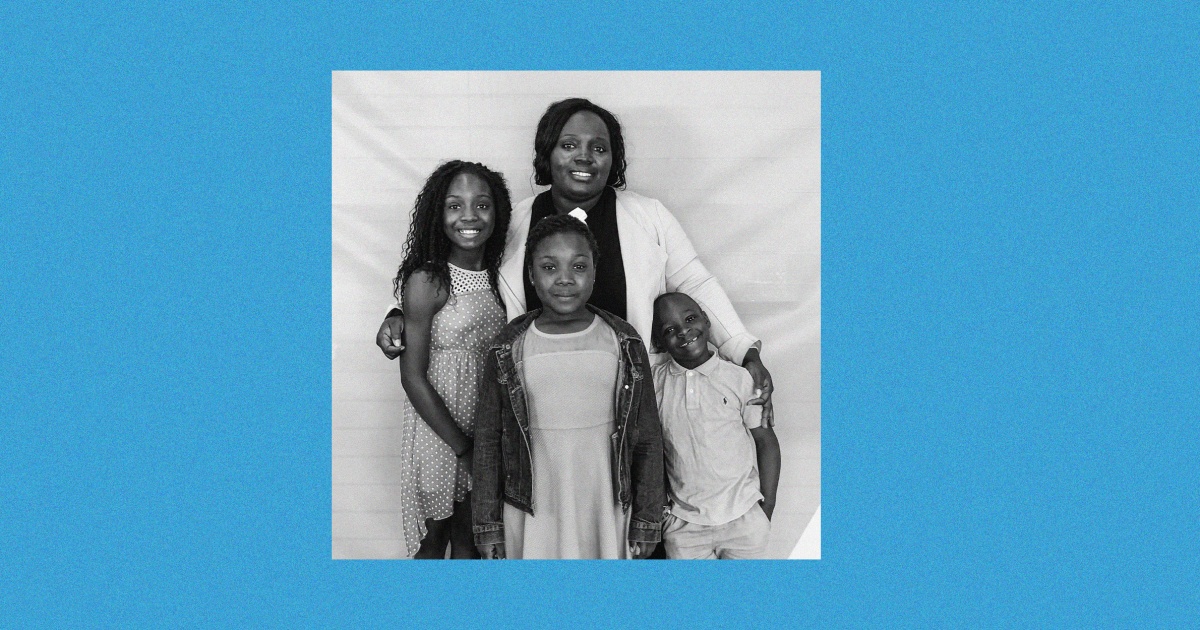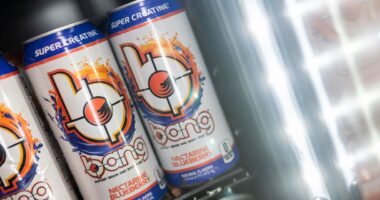
Pamela Ononiwu said she couldn’t believe her eyes when she went to Fairview Elementary School in Fairfax Station, Virginia, to pick up her 5-year-old son for a dentist appointment on Oct. 3, 2018.
Before she could reach the vestibule near the principal’s office, where her son was waiting, she could hear him in distress.
“To my shock and horror, I found my son being put in a chokehold,” Ononiwu, 37, recalled. “This school resource officer was holding him at a 90 degree angle. My son kept trying to kick to get out of it, and the tighter the grip got.”
“I repeatedly told him to let my son go. I was scared because I was like, ‘Will I also be shot dead trying to save my son?’ But I said it’s worth it because I’m not gonna be here and let my son die or pass out in front of me,” the mother of three said. Ultimately, the school officer pushed the boy away, letting him go.
Staff had called the officer to deal with the kindergartner, who has ADHD, because he was singing too loudly in Spanish class and wouldn’t stop, Ononiwu said. Officials with the school district did not immediately respond to a request for comment from NBC News.
After the incident, Ononiwu said she confronted the school principal, school district officials and school board members about the incident, but she said no one would listen to her.
“Nobody thought it was heinous that a child was in a chokehold. No one had any empathy,” Ononiwu said.
She said the incident and apparent apathy from school officials emboldened her to sue the school system, run for the district’s school board and fight to end restraint and seclusion protocols in the schools.
Ononiwu is one of three parents who joined a lawsuit accusing the 187,000-student school system of inflicting “psychological trauma” and “physical harm” on students with disabilities using restraints and seclusion to “silence, detain, segregate, and punish” the children. Ononiwu said the parties recently agreed to settle the suit, with both monetary relief and drastic changes to school policy. An attorney for the parents in the suit declined to comment on the pending settlement.
“There are alternatives. There are other ways to do this. If you are claiming a child has things to work on, the solution isn’t just to throw them in a room. If I did that at home, they’d call Child Protective Services, so I don’t understand why it would be allowed in schools,” she said.
“Both my son and my daughter have been subject to restraint and seclusion,” she said. “They dragged my daughter one day. My daughter told me they dragged her into a room; her shoes were in the hallway.”
In an October 2019 statement addressing the lawsuit, Fairfax County Public Schools Superintendent Scott S. Brabrand said the district had reviewed its restraint and seclusion guidelines, implemented additional training for staff and appointed a new special education ombudsman.
“The School Board believes that its policies and practices with respect to restraint and seclusion are proper under all relevant laws,” the statement read. “The use of restraint and seclusion is an especially sensitive and challenging issue, but there are times when this practice is appropriate and necessary.”
Along with joining the lawsuit, Ononiwu said she launched a bid for the school board in March 2019 to advocate for students with disabilities and establish proper special education resources for children of color. She didn’t win the election, but Ononiwu said she found support from local families of color who have children with special needs. Ononiwu said she may run again, but for now she’s looking for justice elsewhere.
Seclusion and restraint practices are used in schools, most often on boys and children with disabilities, according to the U.S. Government Accountability Office. Some 101,990 students total were secluded or subdued with a physical or mechanical restraint during the 2017-2018 school year, the Civil Rights Data Collection survey found. There are no federal laws governing how seclusion and restraints can be used in schools, and there are no sweeping federal laws with specific guidelines for police use of force on children in general.
This, Ononiwu said, is why she joined the Alliance Against Seclusion and Restraint, a Maryland-based nonprofit organization working to end the use of seclusion and restraints in schools. She is working with the group to advocate for the Keeping All Students Safe Act. The bill would bar school personnel and police stationed on campus from physically restraining students in potentially life-threatening ways, like restricting their breathing or using a prone or supine restraint.
“I’m in my community talking to other parents, letting them know of their rights. A lot of parents will call me and ask for advice,” she said. “With restraint and seclusion, there are instances where the child can die. Even if they don’t die, it can change their life forever.”
Ononiwu said she’ll never forget what her son, now 8 years old, said just moments after being in the chokehold.
“He told me and another adult that he thought the officer was the devil and he was scared that he was gonna die,” she said.
Experiences like this can really change “the relationship and dynamic they have with education,” she said. “I just want this to be prevented.”
Follow NBCBLK on Facebook, Twitter and Instagram.
Source: | This article originally belongs to Nbcnews.com










